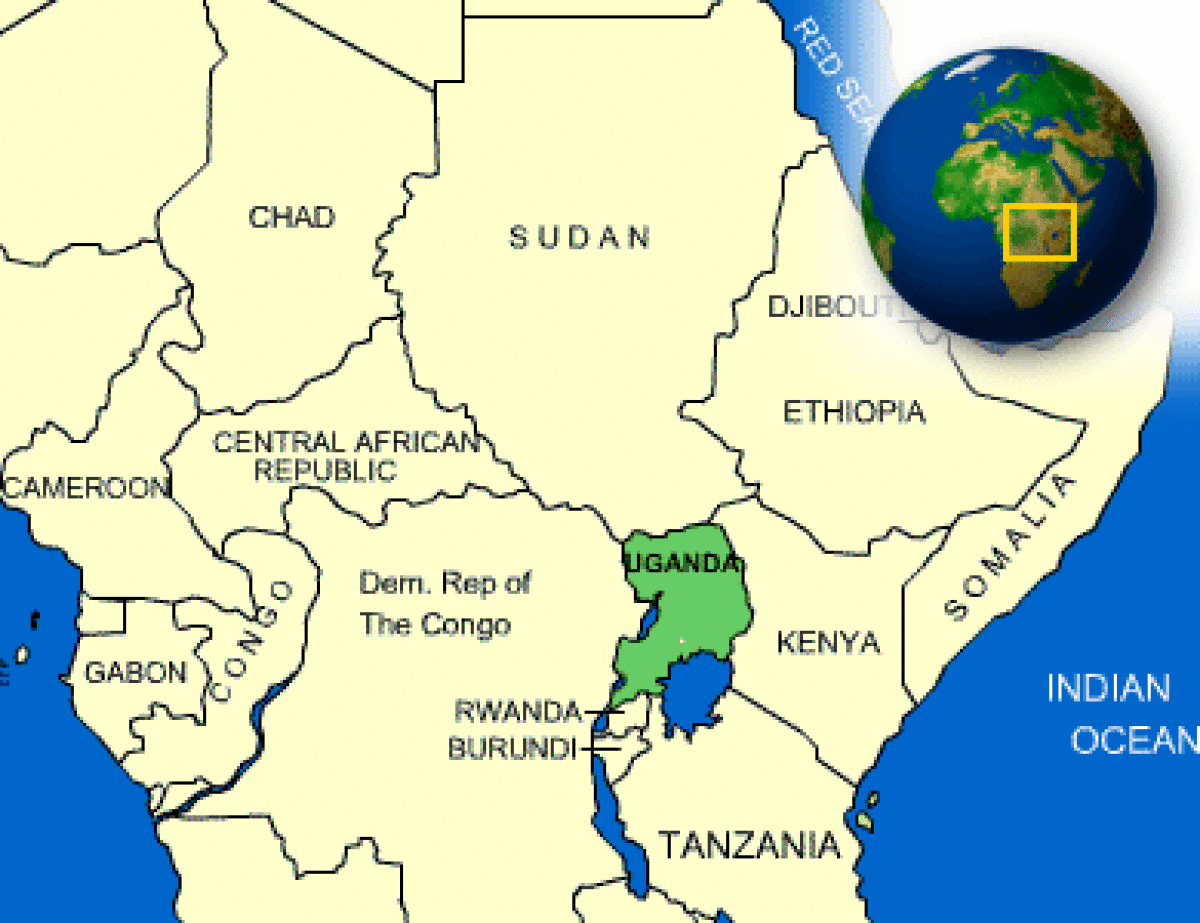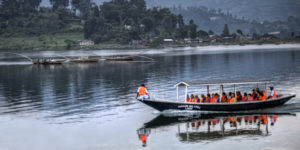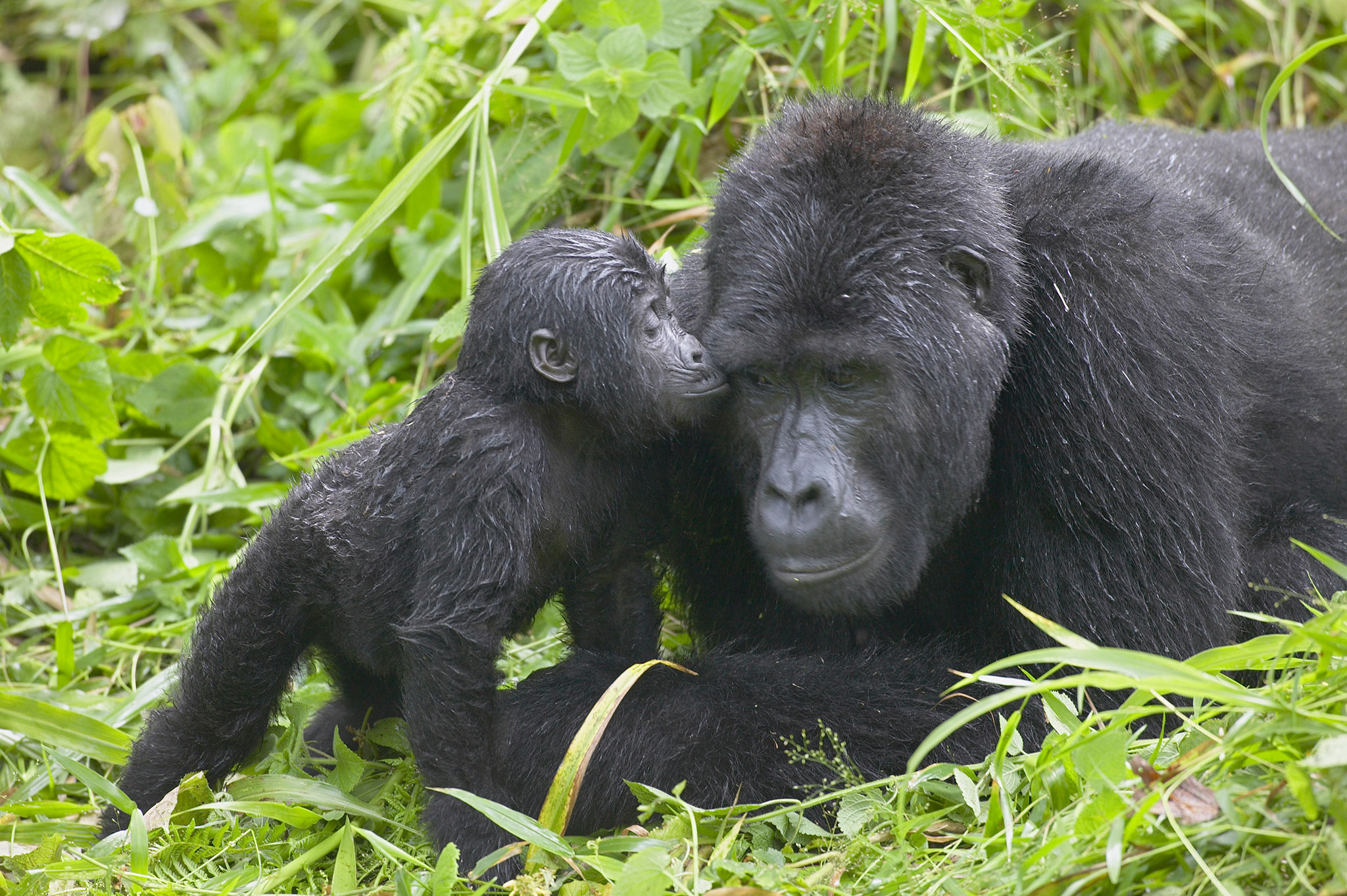Facts About Uganda | All About Uganda - Visit Kisoro
At Visit Kisoro, We bring you all the Facts about Uganda and What you need to know as you plan to visit Uganda. For example which the best time to Visit Uganda, the Currency, the the Cultures, and more.
While planning for a safari to Africa or anywhere else in the world, many travelers want to know more and understand this country before they land in it.
Uganda is one of the Most visited country in East Africa by tourists from all over the World mainly because of its very friendly Visa policy, the available Air Connectivity, the Unique weather and plenty of food varieties and cultures.
Where is Uganda Located?
Uganda is located in East Africa neighbouring Kenya , Tanzania and Rwanda. Uganda is a landlocked country is situated in the heart of Africa’s Great Lakes region, and is surrounded by three of them; Lake Victoria, Lake Albert, and Lake Edward.
The country is mainly a plateau with a rim of mountains, situated mostly between latitudes 4°N and 2°S (a small area is north of 4°), and longitudes 29° and 35°E.
Uganda Quick Facts a Glance
Official name: Republic of Uganda
Location: East Africa
Average altitude: 85% of Uganda lies between 900 and 1,100m above sea level.
Lowest point: 612m in Lake Albert Nile basin. Highest point: 5,109m, Margherita Peak on Mount Stanley (Rwenzori mountains)
National Flag: 2 sets of black, yellow, & red horizontal stripes, with a white circle around a national bird, the Grey Crowned Crane.
Motto: For God and My Country
National Anthem: Oh Uganda, Land of Beauty
Capital and largest city: Kampala
Other cities: Entebbe, Fort Portal, Mbarara, Jinja, Mbale, & Masaka
International Airport: Entebbe International Airport (EBB)
Official languages: English & Swahili
Local tribes & Languages Over 56 tribes & 41 local languages
Religion (2014 census): 84.4% Christianity
Countries that Border Uganda
Uganda shares borders with five other African countries. The countries that border Uganda include;
• Rwanda in the southwest
• Tanzania to the south
• Kenya to the east
• South Sudan to the north
• The Democratic Republic of Congo to the west
Size of Uganda
Uganda is the world’s 79th largest country. Uganda covers a total surface area of 241,551 square kilometres/93,263 square miles. About 41,028 square kilometer /15841 square miles of Uganda’s surface area is covered by water and swamps
About 200523 square kilometers/ 77422 square miles of Uganda’s surface area are covered by land. Uganda is almost the size of Great Britain or the US state of Oregon in comparison.
Official Language of Uganda
English and Swahili are the two official languages of Uganda, despite the country having about 41 spoken local languages.
• English: After Uganda was proclaimed a British protectorate in 1894, English was commonly used in the government, education, and the media.
• Since Uganda gained its independence in 1962, English remained the official language and became synonymous with higher social status. Though English dominates several levels of Ugandan society today, tribal languages are mostly used in primary schools.
• Swahili/Kiswahili: During the rule of Dictator Idi Amin Dada (1971-1979), Kiswahili was declared Uganda’s National Language. Its official use was later replaced with English again at the end of his regime.
• In 2005, Swahili was chosen as another official language in Uganda to facilitate regional integration. However, Ugandans’ command of Swahili falls substantially below that of Tanzania, Kenya, and the even the eastern Democratic Republic of the Congo. Today, you can see Swahili on Ugandan shilling notes.
Population of Uganda
The current Uganda population is estimated at around 45 million people. Its annual growth rate is about 4%, one of the world’s highest. Besides Ethiopia, Uganda is world’s most populous landlocked country.
The last 2014 census showed that;
• Uganda has a population of about 35 million people,
• Uganda has a population density of 157.1/ km² (406.9/Square miles),
• The percentage of females in the population was 51%,
• The percentage of Male in the population was 49%,
• The population of Kampala city was 1.51 million,
• Life Expectancy at birth was 64.2 years for females and for males was 62.2 years.
• The populous ethnic group was the Bantu speaking Baganda, which accounted for 16.5% of the population.
• Other numerically significant ethnic groups included;
• Banyankole: 9.8%
• Basoga: 8.8%
• Bakiga: 7.1%
• Iteso: 7%
• Langi: 6.3%
• Bagisu: 4.9%
• Acholi: 4.4%
• Lugbara: 3.3%
• Other: 32.1%
Religions in Uganda
• Religion plays a great role in the daily life of Ugandans with only 0.2% claiming to have no religious affiliation (atheist).
• Freedom of religion is a constitutional right, although the activities of certain groups classified as cults are restricted.
• Christianity is the most widely professed religion in Uganda with about 85% of the people being Christians.
• The Roman Catholic Church has the largest number of followers in Uganda; about 42%.
• While the Church of Uganda (an offshoot of the Church of England) accounts for about 36% and 7% are Jehovah’s Witnesses or belong to a Pentecostal church.
• Partly as a legacy of the Arab trader with Buganda in the 19th Century, about 12% of Ugandans are Muslim.
• In many rural areas of Uganda, these non-indigenous faiths have not entirely displaced traditional beliefs.
• So, an estimated 25% of the Christian and Muslim population might still partake in traditional religious practices such as making a sacrifice to clan ancestors and other spirits.
• Other minority religion includes Hindu, Baháʼí, and a unique variant of Judaism practiced by Abayudaya of Mbale in Eastern Uganda.
Economy of Uganda
• The free-market economy of Uganda has experienced a steady growth rate of about 5% over the last 30 years.
• Uganda’s continuous economic growth is largely due to the atmosphere of political stability fostered by the National Resistance Movement and economic reforms implemented by President Yoweri Kaguta Museveni in the early years of his rule.
• As a result, the national GDP (nominal) has soared from USD 7 billion in 1986 to around USD 30 billion today, and it is likely to remain one of the world’s fastest-growing economies in the coming decades.
• An important catalyst for this growth has been the expansion of the service and industrial sectors since Yoweri Museveni took power in 1986.
• Since then, Uganda’s agricultural sector accounted for about 60% of the national GDP and over 90% of people in Uganda were subsistence farmers or employed in agricultural-related fields.
• However today, the industrial sector and service sectors contribute about 27% and 50% of the GDP, while the Agricultural sector’s input has dropped to 23%, though still, it employs about 80% of the workforce of around17 a million.
• Fertile soils and high rainfalls have ensured that Uganda has been self-sufficient in terms of food since independence (1962).
• In fact, Uganda has about 49% of all arable land in East Africa. Thus the country has a great potential to be the food basket of the region.
• The major export crops are coffee, tea, cut flowers, tobacco, and cotton. Uganda is the leading coffee exporter in Africa.
• Notable industries include sugar refinement, textile, cement, and steel production.
• Tourism is another major driver of employment, investment, and foreign exchange in Uganda. The sector accounted for 7.3% of GDP, foreign exchange earnings worth USD1.45 billion, and more than 600,000 jobs in 2017.
• Uganda’s tourism destinations include 10 national parks, 12 game reserves, various geographical features, several cultural and historical sites, and numerous natural tropical forests.
• Tourist attractions in Uganda include mountain gorillas, chimpanzees, birds, Big Five gems, the source of the Nile River, Lake Victoria, Rwenzori mountains, weather, and many others
What is the currency of Uganda?
Uganda’s currency structure consists of banknotes and coins. The Uganda shilling is the official currency for Uganda (sign: USh; Code UGX). It cannot be purchased outside the country.
It is a free-floating currency. US dollars are the most useful hard currency, especially in small towns, though euros and pounds sterling are also widely accepted. You can exchange your foreign currency for the local currency at the Entebbe International Airport or in Kampala through their foreign exchange bureaus.
Who is the president of Uganda?
Yoweri Kaguta Museveni is the current president of the Republic of Uganda. The president of Uganda acts as both the Head of Government and the Head of State. The President leads the Executive Branch of the Government of Uganda and is the commander-in-chief of the Uganda People’s Defence Force (UPDF).
President Museveni is the Chairman of the National Resistance Movement (NRM) the current ruling party came to power on 29 January 1986 after a protracted 6-year guerrilla war. He ended the 15-year era of despotic rule and civil war initiated by a coup led by Idi Amin in 1971.
Museveni is the country’s longest-serving leader, having won his fifth presidential election in 2016.
Uganda Judiciary
• The Judicial Branch of Government is independent of the executive and legislative branches. Uganda High Court is the third-highest judicial organ in Uganda, behind the Supreme Court of Uganda and the Court of Appeal of Uganda. The Lord Chief Justice deputized by a Lord Deputy Chief Justice heads the Judiciary.
• Judges for the High Court are appointed by the president; Judges for the Court of Appeal are appointed by the president and approved by the legislature.
In Which time Zone is Uganda?
Uganda Standard Time is 3 hours ahead of Greenwich Mean Time (GMT+3) or Universal Time Coordinated (UTC +3). Uganda is in East Africa Time Zone (EAT). Information about the time zone of Uganda/ time zone in Uganda can help you plan your arrival and departure flights. Uganda does have Daylight-Saving Time because sunrise and sunset times do not vary enough to justify it.
What is the Weather and Climate like in Uganda?
• Situated along Lake Victoria, Uganda is also crossed by several rivers and many other lakes. Uganda is also straddling the equator and this creates a very unique warm tropical climate which adds just another great reason among many for you to visit.
• It is a place where you can enjoy summer like weather mixed with rain year round. Due to its warm tropical climate, Uganda barely ever gets cold except for the south western part of Uganda and the highland areas of Kapchorwa in Eastern Uganda.
Is it safe to visit Uganda for Safari ?
Uganda was ranked as a safe tourism destination in Africa by the World Tourism & Travel Council ( WTTC) f and putting in place all Standard Operating Procedures to protect Tourists. The African Tourism Board also granted Uganda a safer Travel seal in recognition for the fight against COVID 19. Bwindi Impenetrable Park and other Uganda National parks remain very safe haven for both the Mountain Gorillas and the Tourists. Uganda is also ranked as one of the safest and secure countries to visit in the Africa
and putting in place all Standard Operating Procedures to protect Tourists. The African Tourism Board also granted Uganda a safer Travel seal in recognition for the fight against COVID 19. Bwindi Impenetrable Park and other Uganda National parks remain very safe haven for both the Mountain Gorillas and the Tourists. Uganda is also ranked as one of the safest and secure countries to visit in the Africa
Where are the gorillas found in Uganda?
Uganda Mountain gorillas can only be found in the dense vegetation of Uganda’s Bwindi Impenetrable Forest National Park and the Mt. Mgahinga National Park also found in Uganda. These are just 45 minutes away by domestic Flight from Uganda’s Entebbe International Airport. They are also located close to the Queen Elizabeth National Park that is famous for the tree climbing lions in Uganda.
When can you see gorillas and Wildlife in Uganda?
Uganda offers perfect opportunity to see the Mountain Gorillas and Wildlife all year round but the best opportunities for Gorilla Trekking and Safari in Uganda are the country’s two dry seasons: January and February and from June to September.
What is the best month to visit Uganda for Safari ?
Uganda boasts of an equatorial climate , therefore okay to visit any time of the year , however the best time to visit Uganda for safari is during its two dry seasons: between December and February , and between June and August , when its perfect for Mountain Gorilla trekking and chimpanzee Tracking . Game drives and viewing in the 9 national parks is also good at this time .
Why Book a Uganda gorilla Safari with Us? We are locally based in Uganda, We pay attention to detail meeting guest expectations and offer value for money to our clients.
For enquiries kindly email us on info@visitkisoro.com , alternatively you can just call in now through +256 200 909199 or call +256 772 367972 and talk directly to our customer advisor.
